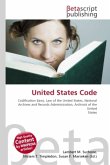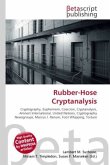High Quality Content by WIKIPEDIA articles! Popper's experiment is an experiment proposed by the 20th century philosopher of science Karl Popper, an advocate of strict scientific method who opposed the Copenhagen interpretation, to test that standard interpretation of quantum mechanics. Popper's experiment is similar in spirit to the thought experiment of Einstein, Podolsky and Rosen (The EPR paradox) although not as well known. The current consensus is the experiment was based on a flawed premise, and thus its result does not constitute a test of quantum mechanics. The experiment does remain important, however, from a historical point of view, and also because it exemplifies the pitfalls that one comes across in trying to make sense out of quantum mechanics. Quantum mechanics is an astoundingly successful hypothesis when it comes to explaining or predicting physical phenomena. There are various interpretations of quantum mechanics that do not agree with each other. Despite theirdifferences, they are experimentally nearly indistinguishable from each other. The most widely accepted interpretation of quantum mechanics is the Copenhagen interpretation put forward by Niels Bohr.
Bitte wählen Sie Ihr Anliegen aus.
Rechnungen
Retourenschein anfordern
Bestellstatus
Storno








